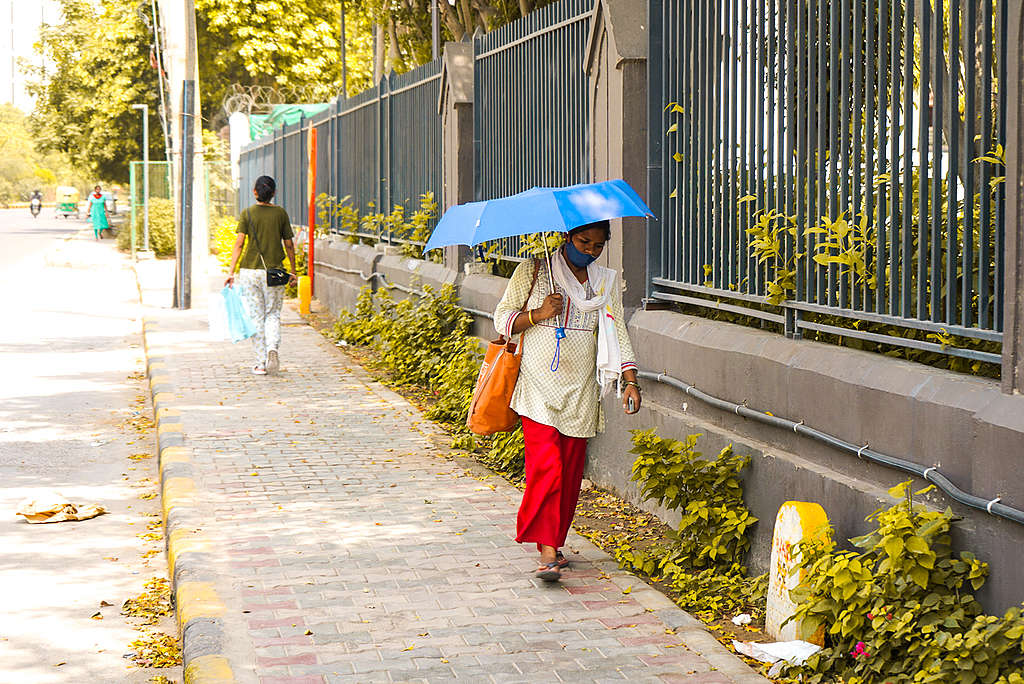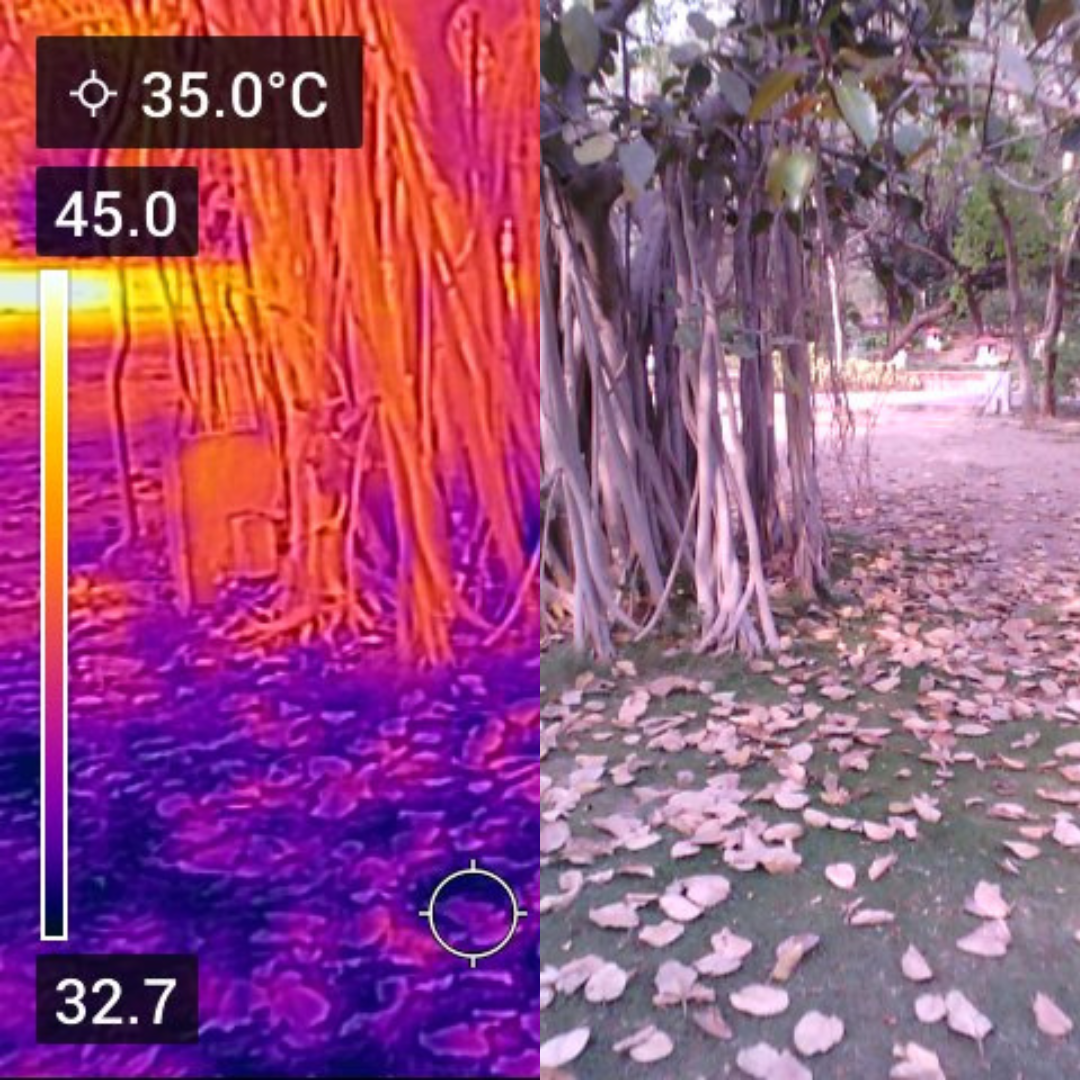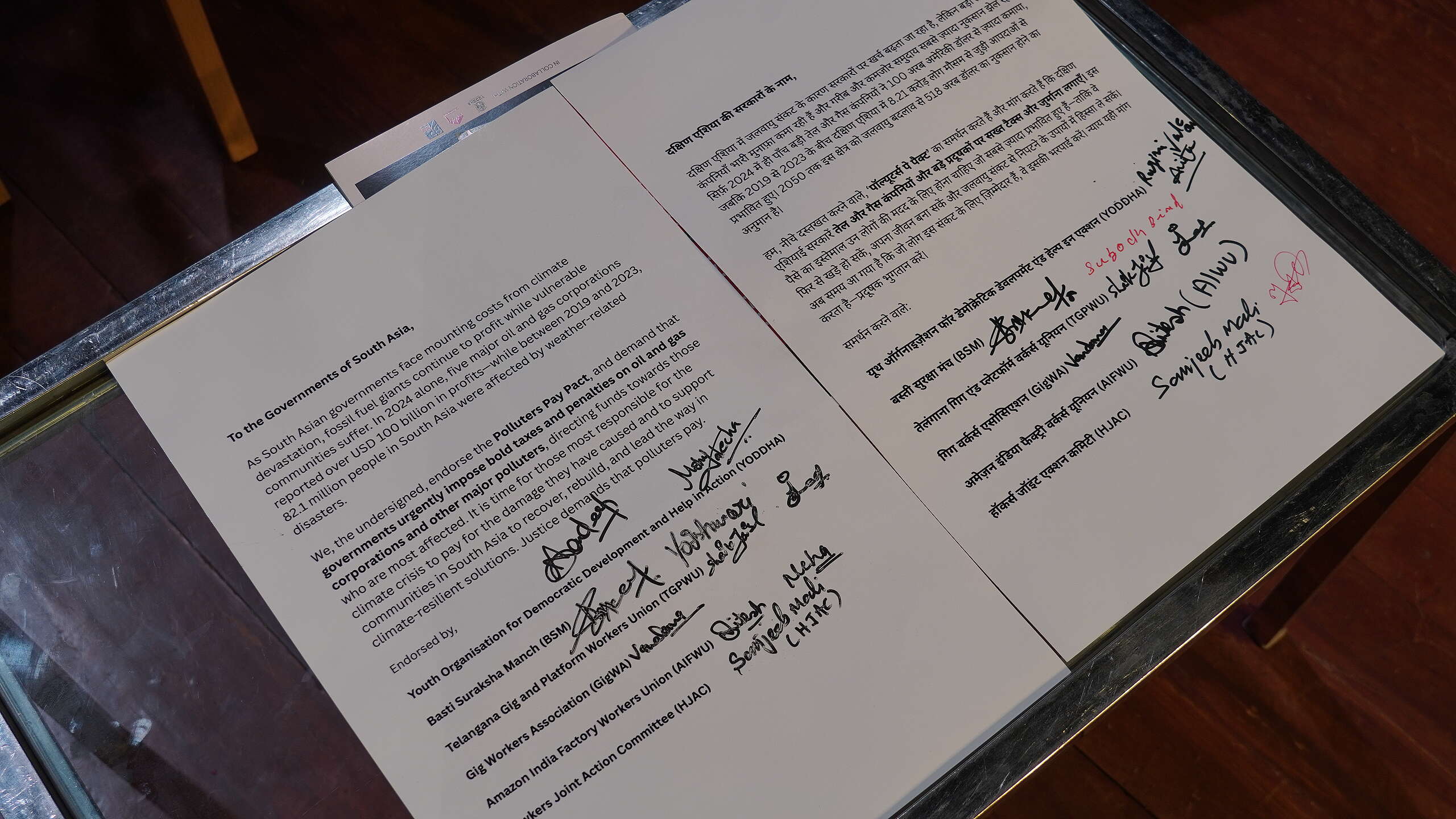
Summers in India are hot, particularly in inland areas without the regulation from the oceans. Although it is not uncommon for maximum temperatures to exceed 35oC in May, the consistently worsening trend of very hot days is worrying. The hottest days for India have increased from 40 days per year in the 1950s to 100 days in the 2020s. This sharp increase and a heat index of over 35oC has significant health impacts that the population is already experiencing. But a matter of greater concern is the fact that multiple climate models have projected that the scenario will worsen significantly with CO2 emissions set to double by 2050. In such a situation the temperature will increase by 4oC on average, by the end of the century, which means unprecedented and prolonged heatwaves, extreme weathers, increased hospitalizations even leading up to fatalities and more disastrous impacts on agriculture and wildlife risking our food and nutritional security.
Unfortunately, as always, it will be the vulnerable communities who will face the crisis at its worst form. The most vulnerable populations, including the urban poor, outdoor workers, women, children, senior citizens, sexual minorities etc are at a significantly greater risk, as they lack adequate access to protective measures. Governments must fortify the resilience of such vulnerable populations by immediately providing aid in a just and equitable manner. State and city authorities must strengthen the public health system, and coordinate with meteorological agencies to relay timely warnings and advisories to citizens.
As long term measures, urban planning must provide for and maintain adequate green cover which includes rooftop gardening, community nutritional gardens, parks, mini forests, road-side tree plantations and water bodies. Additionally, governments, corporations, and civil society must prioritize just transition in energy, transport, agriculture, and other sectors to tackle climate change. Reducing the CO2 emissions, such as shifting into renewables and phasing out internal combustion engines, contribute to reducing the rate of warming in the long run. Phasing out fossil fuels, particularly for energy and transportation systems, is the most practical and immediate solution to tackling climate change and protecting public health. If we do not act now, the threat is only going to amplify in frequency, duration, and magnitude.
There will be more heatwaves, more wildfires and it will be too late.



Discussion
We can take preventive measures to put city temperatures below 4degree the atmospheric temperatures through various methods such as mist air sparer on road side, cotton curtain to be put above building corner keep cott clothes wetty so that air blowing through wetty clothes temperatures will down, Rest direct message Talk. Aslam Shaikh enthusiastic about environmental climate change effect.
Climate change is due to destruction of forest, industrial smoke, failure of monsoon etc. Man has to switch to nature and create forests to get rain. It's a big burden for the mankind. Sensible approach early may be a good remedy.